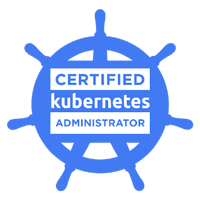Certified Kubernetes Security Specialist (CKS) Course Overview
The advanced training program known as the Certified Kubernetes Security Specialist (CKS) course equips students with knowledge of protecting Kubernetes platforms and container-based applications. The CKS certification provides experts with the skills they need to secure a Kubernetes cluster, from initial setup to continuous monitoring and hardening, through extensive modules. Comprehensive lessons covering a broad range of security practices are provided by CKS training. As an illustration, Module 1 concentrates on confirming platform binaries to guarantee the accuracy of the Kubernetes configuration. The following modules cover supply chain security, system hardening, cluster hardening, minimizing microservice vulnerabilities, and monitoring, logging, and runtime security. Every lesson is carefully designed to cover a particular aspect of Kubernetes security, including container runtime security, managing secrets, role-based access control, and analyzing system calls to spot malicious activity. After earning the CKS certification, students are well-equipped to apply security best practices and navigate the intricacies of Kubernetes security, which makes them useful resources in the cloud-native technology industry.
Course Prerequisites
In order to complete the Certified Kubernetes Security Specialist (CKS) training program, learners must meet the following minimal requirements:
- A solid grasp of the foundations of Kubernetes, including pods, services, and basic networking principles.
- Administration experience with Kubernetes clusters, including cluster setup and management.
- Familiarity with shell scripting and the Linux/Unix command line tools.
- Understanding of fundamental security ideas, such as network security and access controls.
- Familiarity with Docker and other containerization technologies.
- knowledge of the YAML and JSON formats for resource definitions in Kubernetes.
- Gaining knowledge of CI/CD practices and DevOps principles is advantageous.
- It is strongly advised to obtain the Certified Kubernetes Administrator (CKA) certification or have experience comparable to it, as CKS expands on the knowledge needed for CKA.
It should be noted that passing the CKA exam is a prerequisite for the CKS exam, which will also feature a set of Kubernetes clusters in which candidates must apply their CKA-level knowledge to complete security-related tasks.
Target Audience for Certified Kubernetes Security Specialist (CKS)
IT professionals interested in Kubernetes cluster security and best practices should take the Certified Kubernetes Security Specialist (CKS) course.
- Kubernetes Administrators
- DevOps Engineers
- Cloud Security Engineers
- Cloud Architects
- Site Reliability Engineers (SREs)
- Architects and Security Analysts with an emphasis on containerized environments
- Experts in IT Security
- Engineers in Infrastructure Security
- DevSecOps-focused application developers
- System administrators interested in specializing in security for container orchestration
- Compliance officers in charge of deployments utilizing containers
- Technical Leads managing the infrastructure for Kubernetes
Learning Objectives – What you will Learn in this Certified Kubernetes Security Specialist (CKS)?
Participants in the Certified Kubernetes Security Specialist (CKS) course gain the best practices and competencies needed to secure Kubernetes platforms and container-based applications throughout the build, deployment, and runtime phases.
Learning Objectives and Outcomes
- Verify the integrity of Kubernetes platform binaries to ensure secure deployment.
- Implement access restrictions to Kubernetes API to minimize unauthorized access risks.
- Apply Role-Based Access Control (RBAC) to enforce the principle of least privilege.
- Manage service accounts diligently, disable defaults, and restrict permissions for new accounts.
- Keep Kubernetes updated to mitigate vulnerabilities and enhance security features.
- Reduce the host operating system’s attack surface to fortify cluster security.
- Minimize IAM permissions and roles to what is necessary for optimal operational effectiveness.
- Limit access to the external network and follow best practices for network security.
- To guard against exploits, use kernel hardening tools such as Seccomp and AppArmor.
- To secure and isolate workloads, configure OS-level security domains using PSP, OPA, and Security Contexts.
- Handle Kubernetes secrets well to safeguard sensitive data.
- To isolate workloads in multi-tenant environments, use container runtime sandboxes.
- Put mutual TLS (mTLS) into practice to enable secure pod-to-pod communication.
- In order to minimize vulnerabilities and guarantee a secure basis for containerized applications, optimize base images.
- By using reputable registries, signing photos, and verifying image signatures, you can secure the supply chain.
- Analyze user workloads statically and check images for known vulnerabilities.
- Malicious activity can be identified by tracking and examining file activities, system calls, and behavioral patterns.
- Recognize threats in all phases of an attack related to the infrastructure, applications, networks, data, users, and workloads.
- Investigate thoroughly in order to find and fix security breaches.
- Make sure that containers are immutable during runtime, and use audit logs for compliance and monitoring.

Testimonials
Duke Training Centre Unique Offerings
Online Instructor Led
With the convenience of your home or workplace, you can learn from our knowledgeable trainers online.
Classroom Training
In-person instruction in a physical classroom with maximum interaction at our five-star training facilities.
Schedule Dates
01 November 2024
01 November 2024
01 November 2024
01 November 2024



 Duration
Duration Language
Language Batch Options
Batch Options Upcoming Batch
Upcoming Batch






